Gender Equality National Report Hungary - European-microfinance ...
Gender Equality National Report Hungary - European-microfinance ...
Gender Equality National Report Hungary - European-microfinance ...
Create successful ePaper yourself
Turn your PDF publications into a flip-book with our unique Google optimized e-Paper software.
In 2003 the proportion of women with a scientific degree was 3.5% in the case of academic<br />
membership, in the case of scientific doctor’s degree it was 11.5%, in terms of candidate in<br />
sciences it was 21.8%.<br />
Family decisions, social division of labour 18<br />
Men’s and women’s places in society display basic differences although the equality of rights<br />
is legally established. The basic unit of society is the family. Women’s place within the family,<br />
division of labour and the structure of decisions - that is dealing with the resources (both<br />
financial and inner resources) determines women’s role and place as well. Women’s role as<br />
mothers and wives and its judgement has not changed in the past years, thus they have to<br />
tackle their participation in the labour market with increasing hardship. The division of labour<br />
in the traditional family encumbers public and labour participation. The extent of taking over<br />
duties between the genders in the family greatly depends on the couple’s level of<br />
qualification, occupation and incomes. Women with low indexes and living in small townships<br />
carry a greater burden; therefore they are disadvantaged in terms of financial resource<br />
attainment and higher participation on the labour market.<br />
Apart from the legal background, which provides legal equality, the practical enforcement of<br />
laws, actions and the network of supporting institutes, the change of social attitude is an<br />
important requirement for women’s greater social participation.<br />
Social equality of men and women significantly influences how people feel and has an impact<br />
on economic development. Healthy population and continuous economic growth are only<br />
possible if men and women can realize their career plans and satisfy their material needs<br />
with equal chances. 19<br />
3.4. <strong>Gender</strong> equality on the labour market and in the access to programs supporting<br />
the process of becoming self-employed<br />
3.4.1. <strong>Equality</strong> in labour market participation (employment, level of income, proportion<br />
of part-time jobs)<br />
a.) <strong>Gender</strong> equality in economic activity Score 3<br />
In the period prior to the political change, there evolved a fairly high level of women’s<br />
economic activity, the majority of women had jobs in specie. The level of employment<br />
reached its maximum possible not only socially but also demographically. The economic<br />
activity rate of women in <strong>Hungary</strong> exceeded far beyond that of developed market economies,<br />
and it was even several percentage points higher than the indexes of the Scandinavian<br />
countries, which are traditionally considered to be leading economies in regard to<br />
employment issues. Many factors contributed to this e.g. the enormous labour needs of the<br />
ideology of extensive industrialization; the political intent to have maximum control over as<br />
many citizens as possible; and the job opportunities were demanded by women themselves.<br />
Doubtlessly there were negative sides to full employment of women: the encumbrance of<br />
women, weakening of family functions etc. It is also a fact that the negative discrimination of<br />
women in the labour market still remained - despite the laws providing equal rights. Yet, the<br />
increasing economic activity entailed the actual improvement of women’s position. Their<br />
employment helped the financial situation of their families; working outside home enriched<br />
their life, alleviated poverty, and reduced their vulnerability to family and men.<br />
18 Bernadett Csurgo -Boldizsar g. Megyesi: Family decisions, division of labour and social structure in<br />
Social sections Napvilag Kiado Publishing 2006<br />
19 GM manual (source: www.genderpilot.hu)<br />
37


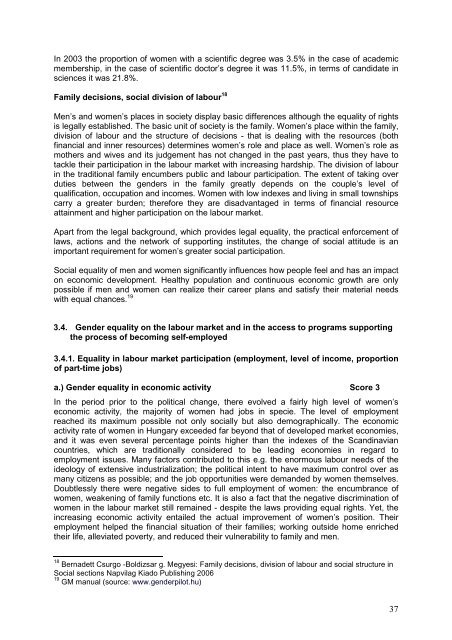
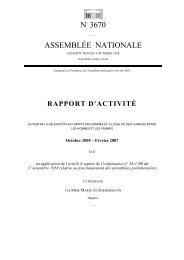
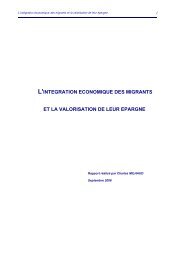

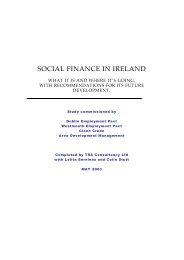

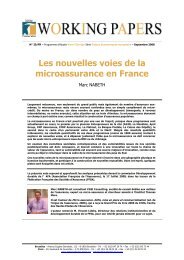
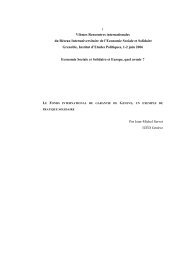


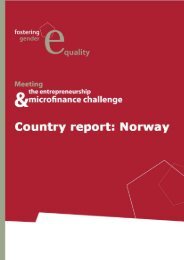
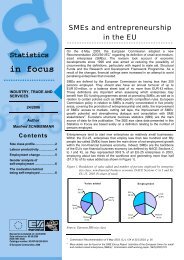
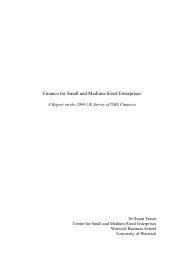
![Joint Report on Social Protection and Social Inclusion [2005]](https://img.yumpu.com/19580638/1/190x132/joint-report-on-social-protection-and-social-inclusion-2005.jpg?quality=85)
